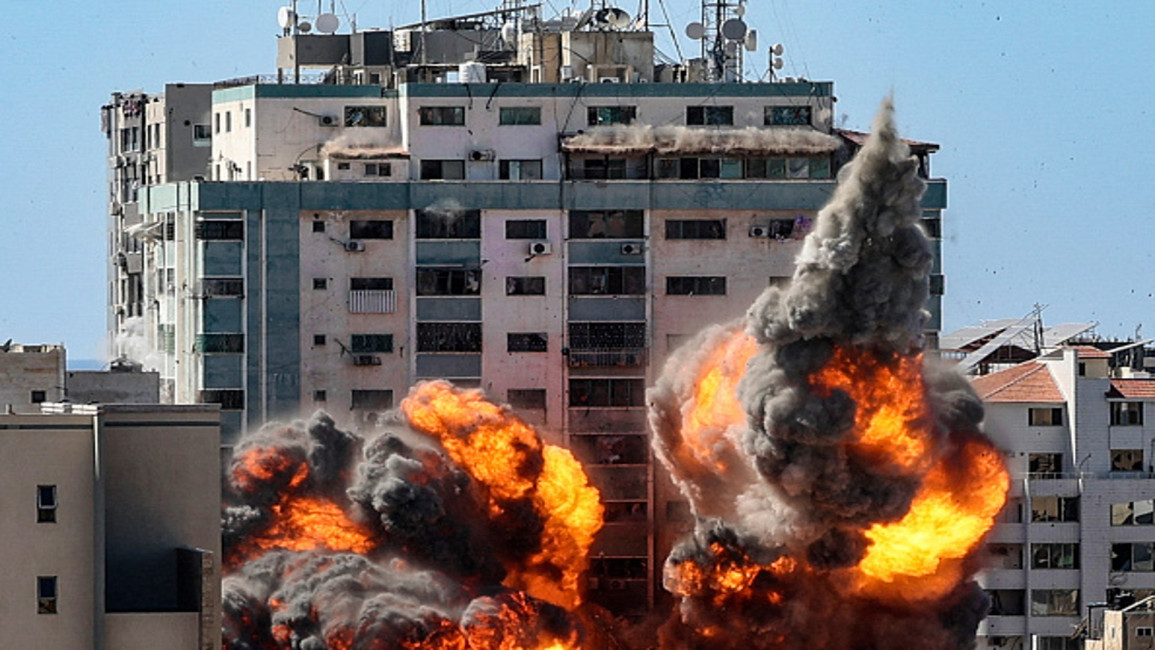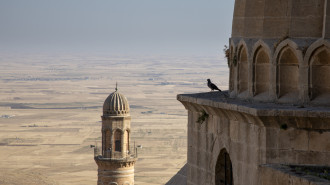Israeli strike on Gaza high-rise block broke international law: HRW
Israeli air raids that demolished four high-rise buildings in a densely populated neighbourhood in Gaza in May apparently violated the law of war, Human Rights Watch said on Monday.
The leading international human rights group has called on the Israeli military to produce evidence justifying the attacks against the Hanadi, Al-Jawhara, Al-Shorouk, and Al-Jalaa towers in the Al-Rimal neighbourhood in Gaza City.
While these specific air raids resulted in no known casualties, they inflicted "major lasting harm", according to the group, and may amount to war crimes.
"The apparently unlawful Israeli strikes on four high-rise towers in Gaza City caused serious, lasting harm for countless Palestinians who lived, worked, shopped, or benefited from businesses based there," Richard Weir, crisis and conflict researcher at Human Rights Watch, said in a statement.
"The Israeli military should publicly produce the evidence that it says it relies on to carry out these attacks."
HRW interviewed by phone 18 Palestinians who were witnesses and victims of the attacks on the towers.
Jawad Mahdi, 68, who resided at Al-Jalaa tower with his family members, said of his experience: “All these years of hard work, it was a place of living, safety, children and grandchildren, all our history and life, destroyed in front of your eyes... It's like someone ripping your heart out and throwing it."
At the time, the Israeli military sought to justify the attack by blaming Palestinian Islamist group Hamas, alleging they had been using the buildings for military purposes. However, it has yet to provide evidence to back up these claims.
The New York-based human rights watchdog said it reviewed video footage and photographs but found no evidence that members of Palestinian groups - involved in military operations - had a presence in any of the towers at the time of the attacks.
"Even if there were such a presence, the attacks appeared to cause foreseeably disproportionate harm to civilian property," the organisation concluded.
HRW added that the long-term effects of the attacks "extend beyond the immediate destruction of the buildings", as jobs were lost and families displaced.
The report comes on the heels of two previous ones on the 11-day offensive, in which HRW also pinpointed specific attacks that may amount to war crimes.
At least 260 people were killed in Gaza, according to the United Nations. The organisation estimates at least 129 of them were civilians, including 66 children.
According to international law, a country responsible for breaking the laws of war - which include taking all feasible precautions to minimise harm to civilians - must make full reparation for the loss or injury caused, including individual compensation.







 Follow the Middle East's top stories in English at The New Arab on Google News
Follow the Middle East's top stories in English at The New Arab on Google News
![Israel demolished homes in the Silwan area [Getty]](/sites/default/files/styles/image_330x185/public/2024-11/GettyImages-2183868368.jpg?h=199d8c1f&itok=TweR8vd0)

